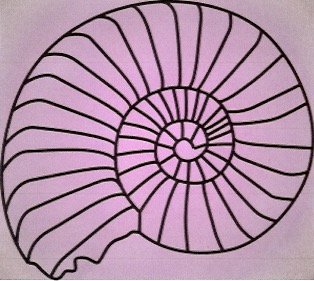Pink Beach Chapter 8
Mrs Gale let the sand run through her fingersfingers like a pink showershower and lookedlooked closelyclosely at it. "It does notdoesn't seem like other sand, the pieces are bigger.bigger. They seem like pieces of shell."
"It isIt's because it's crushedcrushed up shell," notednoted Mia. "You can tell because the pieces are flat and smooth, just like shell."
"Yes, it's certainlycertainly shell," Mr Gale added.added. "There is notisn't a grain of ordinaryordinary sand anywhereanywhere – but it's brokenbroken intointo such small pieces that we might as well call it sand."
 "I can see why it's pink, look!" said Mrs Gale. She held out a handfulhandful of the tiny pieces. AmongAmong them were two broken pink shells, and a whole one that looked like a flat, thick snail-shell. "It's pink because all the shells were like this beforebefore they got crushedcrushed on the rocks by the waves. That isThat's actuallyactually how all sand is made, from rocks and pebblespebbles as well as shells!"
"I can see why it's pink, look!" said Mrs Gale. She held out a handfulhandful of the tiny pieces. AmongAmong them were two broken pink shells, and a whole one that looked like a flat, thick snail-shell. "It's pink because all the shells were like this beforebefore they got crushedcrushed on the rocks by the waves. That isThat's actuallyactually how all sand is made, from rocks and pebblespebbles as well as shells!"
"But what I want to know is why is this pink sand here and nowherenowhere else?" asked Mia.
Mr Gale thought for a while and then answeredanswered Mia. "I think it's probableprobably because not too far away, in the deep water, there isthere's a big bed of these pink shellfishshellfish – thousands of them. They get washedwashed up on this beach by the current.current. This has probably been going on for hundredshundreds of years, and this little beach has been filleded up, deeperdeeper and deeper, with the crushedcrushed pink pieces.
|
Comprehension Summarise what has happened so far in this narrative. Clarify these words: ordinary, among, actually, pebbles, probably, washed up, current. Retell what happens in this chapter. Was the prediction you made correct? Make inferences about:
Predict what you think might happen next. What question could you ask about this chapter? Visualise these uses of descriptive language: let the sand run through her fingers like a pink shower; looked closely at it; a whole one that looked like a flat, thick snail-shell; shells crushed on the rocks by waves; big bed of these pink shellfish, thousands of them; washed up on the beach by the current. Make a connection with this chapter. |
Word Study Verb endings: What happens when we add s, ed or ing to: note, let, hold, crush. Other affixes: What happens when we add prefixes and suffixes like er, y, ly, en to these words: big, hand, close, certain, actual, broke. What two words make up these compound words: anywhere, nowhere, shellfish. What two words are contracted here: doesn't, it's, isn't, that's, there's.
|